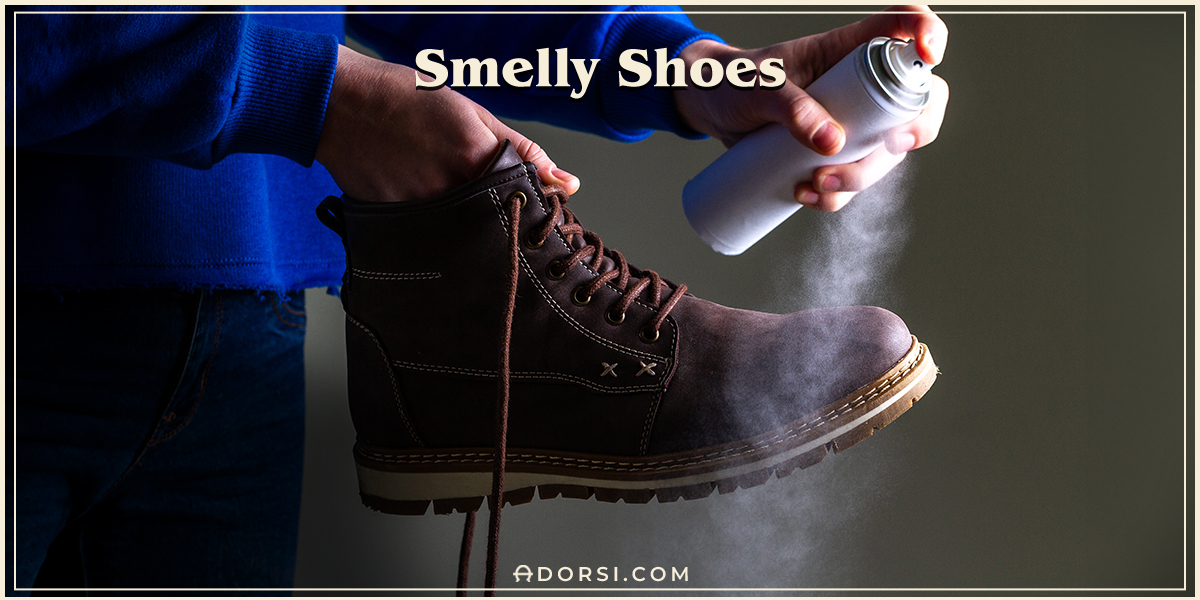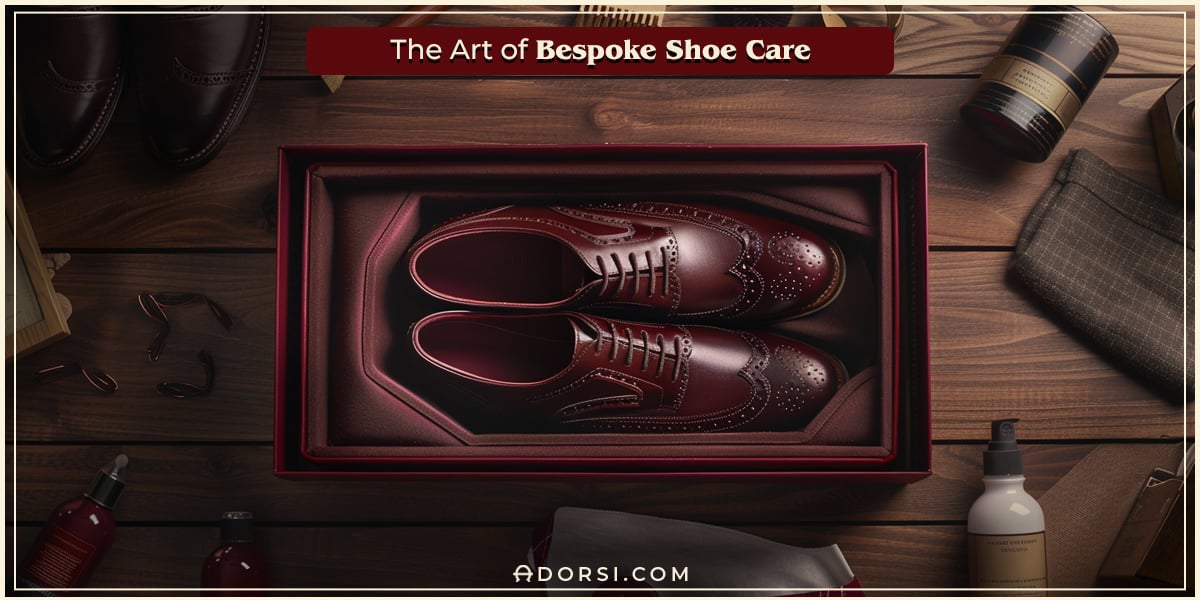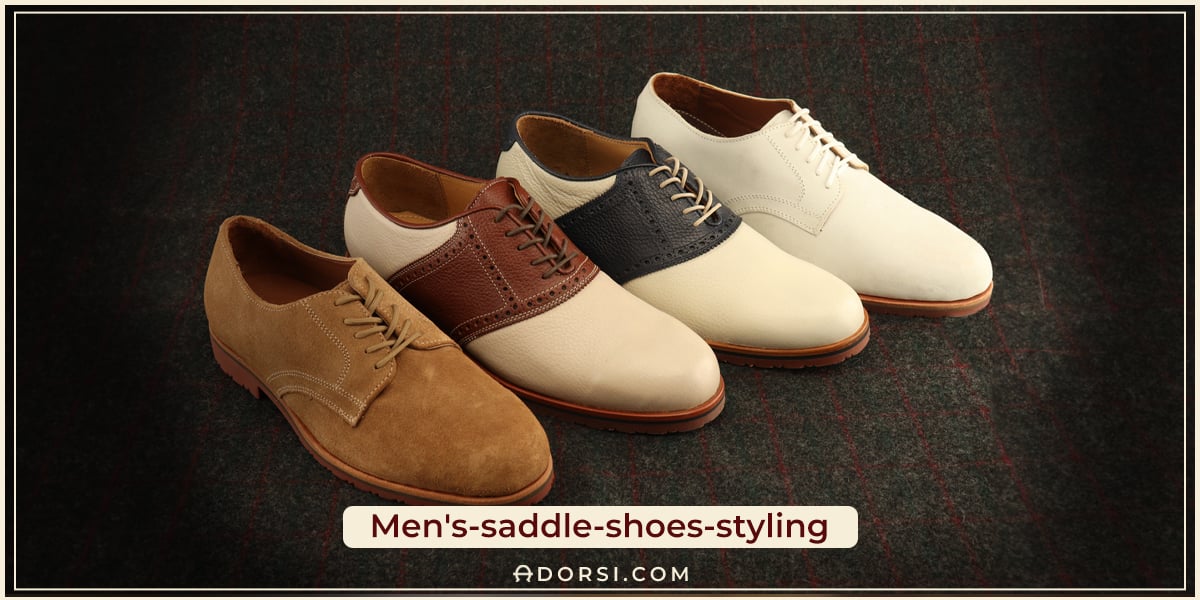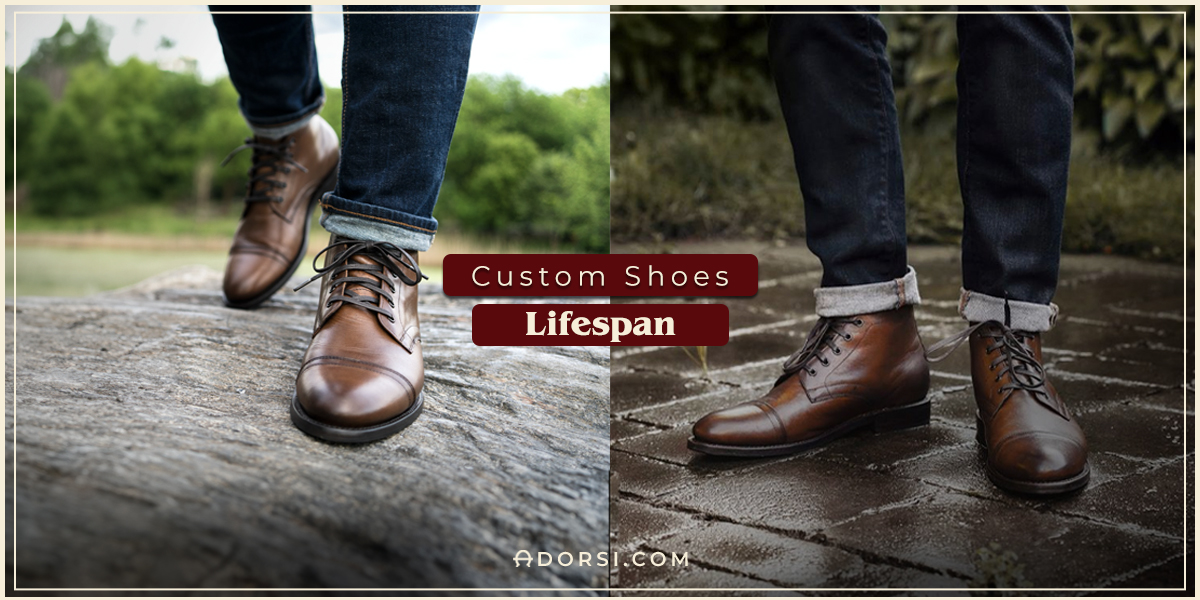Are your shoes emitting an unpleasant odor that leaves you feeling embarrassed and uncomfortable? Don't worry ; we've got you covered!
Whether you lead an active lifestyle or you simply wear shoes for extended periods, these methods will help you regain fresh and clean footwear.
Now, let's delve into the reasons behind that unpleasant smell before we explore how to get rid of it.
What causes smelly shoes?
Smelly shoes can be caused by a mix of different factors. Once you grasp these reasons, you'll be able to take the right steps to keep that unpleasant odor at bay!
Sweat and Bacteria Buildup:
When your feet sweat, that moisture gets stuck in your shoes, creating a damp space that's just what bacteria love. These little guys feast on the sweat and release stinky compounds that make your shoes reek.
Active Lifestyles:
Engaging in physical activities and leading an active lifestyle can contribute to bad smell shoes. Increased physical exertion leads to more sweat production, which, when combined with bacteria, intensifies the odor. People who play sports or do intense workouts on the reg are especially likely to deal with this problem.
Wearing Shoes for Extended Periods:
If you keep rocking the same shoes without giving them a chance to dry out completely, it can make the smell even worse. When you don't let them breathe and dry properly, moisture gets trapped, and that's the perfect breeding ground for bacteria to party in.
Poor Shoe Hygiene Practices:
If you don't take good care of your shoes, they're bound to get stinky. Skipping the cleaning routine and neglecting to get rid of dirt, gunk, and sweaty leftovers from the inside will only make the smell worse.
How to get smell-free shoes?
Here are some tips to incorporate into your routine to significantly reduce shoe odor and enjoy fresh-smelling footwear.
Clean the Shoes Properly
- Remove any dirt or debris from the shoes by gently brushing or wiping them.
- Handwash or machine wash the shoes if they are suitable for the material,
but make sure to refer to the manufacturer's instructions for specific cleaning guidelines. - When washing, use a gentle detergent to avoid damaging the shoes,
and follow the recommended water temperature. - Allow the shoes to air dry thoroughly before wearing them again.
Use Natural Remedies:
- Baking soda is an excellent natural deodorizer. Sprinkle it inside the shoes to sit overnight. Shake or brush off the baking soda the next day.
- Coffee grounds placed in a breathable bag or sachet can also help absorb shoe odor. Pop them in a breathable bag or sachet and place them inside your shoes overnight. In the morning, take out the coffee grounds, and you're good to go.
- Tea bags, particularly those with strong fragrances like mint or lavender, can provide a clean scent to combat shoe odor. Insert a couple of dry tea bags into each shoe and leave them overnight.
- You can also use a bar of soap as a natural remedy for shoe odor. For a quick and straightforward solution, simply stuff the soap directly into the shoes and let it sit overnight.
- Lime peel is another quick shoe deodorizer.
Simply put it in your shoes and let it absorb the pleasant smell overnight.
Practice Good Foot Hygiene
- Make sure your feet are clean and dry before slipping into your shoes. Give them a good wash with gentle soap and warm water, paying extra attention to the nooks and crannies between your toes to remove any dead skin cells.
- Once they're squeaky clean, make sure to dry them thoroughly, including the spaces between your toes. Excess moisture is like a buffet for odor-causing bacteria, so it's best to keep things nice and dry.
- When it comes to socks, go for moisture-wicking, clean socks kind that are made of breathable materials. These will help absorb sweat and keep your feet feeling fresh. Don't forget to get a fresh pair regularly,
especially if you have sweaty feet.
Consider Custom-Made Shoes
- Opt for shoes made from breathable materials, such as leather, canvas, or mesh, as they allow air circulation and help prevent moisture buildup.
- Choose shoes crafted with high-quality materials and craftsmanship to ensure durability and reduce the chances of odor-causing bacteria.
- If you have common conditions like excessive sweating or dry skin, it's a smart move to seek advice from a podiatrist or orthopedic specialist. They can help you get custom-made shoes that are perfectly tailored to your needs. Your feet deserve the best!
How to clean specific types of shoes?
Taking care of different types of shoes requires specific methods to keep them looking good and lasting longer.
Leather Shoes
To clean your leather shoes, begin by removing any dirt and debris from the shoes using a soft brush or a damp cloth. Make sure to cover the entire surface of the shoes while cleaning.
Next, prepare a mixture of leather cleaner or mild soap diluted in water. Take a piece of cloth or sponge, dip it into the solution, and gently clean the surface of the shoes. Pay attention to any areas that require extra attention.
Once you have cleaned the shoes, rinse the cloth with cold water to get rid of any soapy residue, and carefully wipe away any remaining residue from the shoes to ensure that no cleaning agents are left on the surface.
In case you encounter any scuffs or stains on your leather shoes, there are additional steps you can take. Use a leather cleaner or create a mixture of equal parts vinegar and water. Before using it on the affected area, test the solution on a small, inconspicuous spot to ensure it does not damage the leather. Then, gently rub the affected area with a cloth using the solution. After removing the scuffs or stains, wipe away any residue and proceed to condition the leather as previously mentioned.
Suede Shoes
Start by using a soft brush or a specifically designed suede brush to remove any loose dirt and restore the nap of the suede. Gently brush the surface in the direction of the fibers to avoid damaging the suede.
If you encounter stains or marks on the suede, there are a few options to try. You can use a suede eraser, specifically made for removing marks on suede, or create a mixture of equal parts water and white vinegar. Dampen a clean cloth with the solution and gently rub the affected area in a circular motion. Afterward, blot away any excess moisture with a dry cloth.
To further enhance the texture and appearance of the suede, you can employ steam. Hold the shoes over steam, ensuring that it's not too close, to raise the nap of the suede. Once the suede becomes damp from the steam, use a suede brush to brush the fibers in one direction.
Fabric Shoes
To clean fabric shoes, start by removing any loose dirt or debris from the shoes by gently brushing or shaking them.
If your shoes are machine washable, check the care label to ensure they can be safely washed. Use a gentle cycle and mild detergent. To protect the shoes during the wash, place them in a mesh laundry bag or pillowcase.
For fabric shoes that are not machine washable, create a cleaning solution in a spray bottle by mixing warm water with mild detergent or laundry soap. Dip a cloth or sponge into the solution, wring out any excess moisture, and gently clean the shoes.
Rinse the cloth or sponge and wipe away any soapy residue from the shoes to ensure they are spotless.
Once the shoes are completely dry, use a fabric freshener spray to add a pleasant scent and eliminate any unwanted odors. This step will help keep your shoes smelling fresh.
Remember to always let your pair of shoes dry naturally after cleaning and keep them away from direct heat sources, and stay away from hot water. More importantly, follow the manufacturer's instructions if you're unsure about cleaning specific types of shoes.
Additional tips for an odor-free shoe
Proper Storage Techniques
- Allow your shoes to fully air dry before storing them. Moisture trapped in closed containers can promote bacterial growth and lead to bad odors.
- Store shoes in a well-ventilated area to prevent the buildup of moisture and odors.
- Consider using shoe racks or open shelves to allow air circulation around the shoes.
- If you need to store shoes in boxes, make sure the boxes have ventilation holes or use breathable storage bags to prevent moisture buildup.
Foot Powders or Sprays
- Using foot powders or sprays can effectively combat moisture, regulate perspiration, reduce odor-causing bacteria, and keep your feet dry.
- Look for foot powders or sprays that contain ingredients like baking soda, talcum powder, or antimicrobial agents to help with smelly feet.
- To avoid foot odor, apply the powder or spray directly to your feet or inside your shoes before wearing them.
Rotate Your Shoes
- Avoid wearing the same pair of shoes every day. Give your shoes at least a 24-hour break between uses to allow them to air out and dry.
- By rotating your shoes, you reduce the chances of excess moisture, stinky feet, and bacterial growth, which can lead to unpleasant foot odors.
Replacing Old or Worn-out Shoes
- Over time, your favorite shoes can accumulate bacteria, sweat , and an odor that may become difficult to eliminate.
- If your shoes are old, worn-out, or have persistent odor issues despite cleaning and preventive measures, it may be time to replace them.
- Invest in high-quality shoes made from breathable materials to minimize foot odor problems in the long run.
You've now equipped yourself with practical tips and effective methods to eliminate shoe odor and enjoy fresh-smelling footwear. By implementing these techniques, you can confidently bid farewell to the embarrassment and discomfort caused by stinky shoes.
Frequently Asked Questions (FAQs)
1. What is a quick home remedy for smelly shoes?
Use baking soda in your shoes. Sprinkle it inside, wait overnight, then shake it out. You can also try coffee grounds, tea bags, or lime peels. They work too.
2. Why does my shoe smell?
Shoes can smell due to the buildup of sweat and bacteria inside them. When you wear shoes, your feet sweat, and the moisture gets trapped, creating a breeding ground for bacteria. The bacteria feed on the sweat, and as they break it down, they produce a foul-smelling odor.
3.How to banish the bad smells out of your shoes?
To get rid of your shoe's bad smell, try home remedies, practice regular cleaning of your shoes to prevent odors from building, and ensure proper ventilation for your shoes by letting them air out after each wear.




